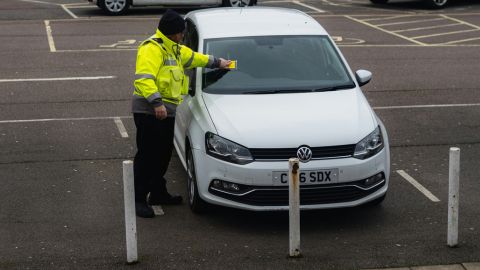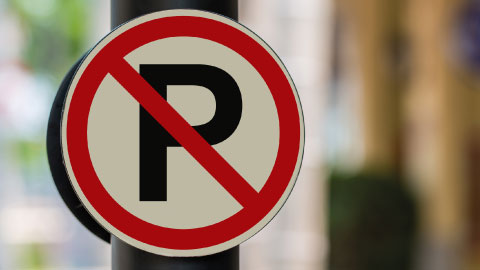Revealed: Disabled Parking Bay Misuse in the UK
26th Sep 2025
By Ellie Brown
Disabled parking bays are essential for people with mobility challenges, as they make it possible to access shops, workplaces, and essential services safely and independently. But, when these spaces are misused, the impact can be detrimental, leaving those who genuinely need them unable to park close to their destination.
New Freedom of Information (FOI) data submitted by Evans Halshaw reveals that councils across the UK have issued over 1 million fines to drivers misusing disabled parking bays since 2019.
These findings highlight the urgent need to protect Blue Badge bays to ensure accessibility for all. We've identified the councils with the highest number of fines, the most common locations for violations, and the significant impact of this widespread issue.
- Over 1 million fines issued since 2019
- Top 10 councils for Blue Badge parking fines
- Daily Blue Badge fine distribution
- Areas with the fewest Blue Badge violations
- Repeat offenders
- Most common offence locations
- The cost of misuse
- Why this matters
Over 1 million fines issued since 2019
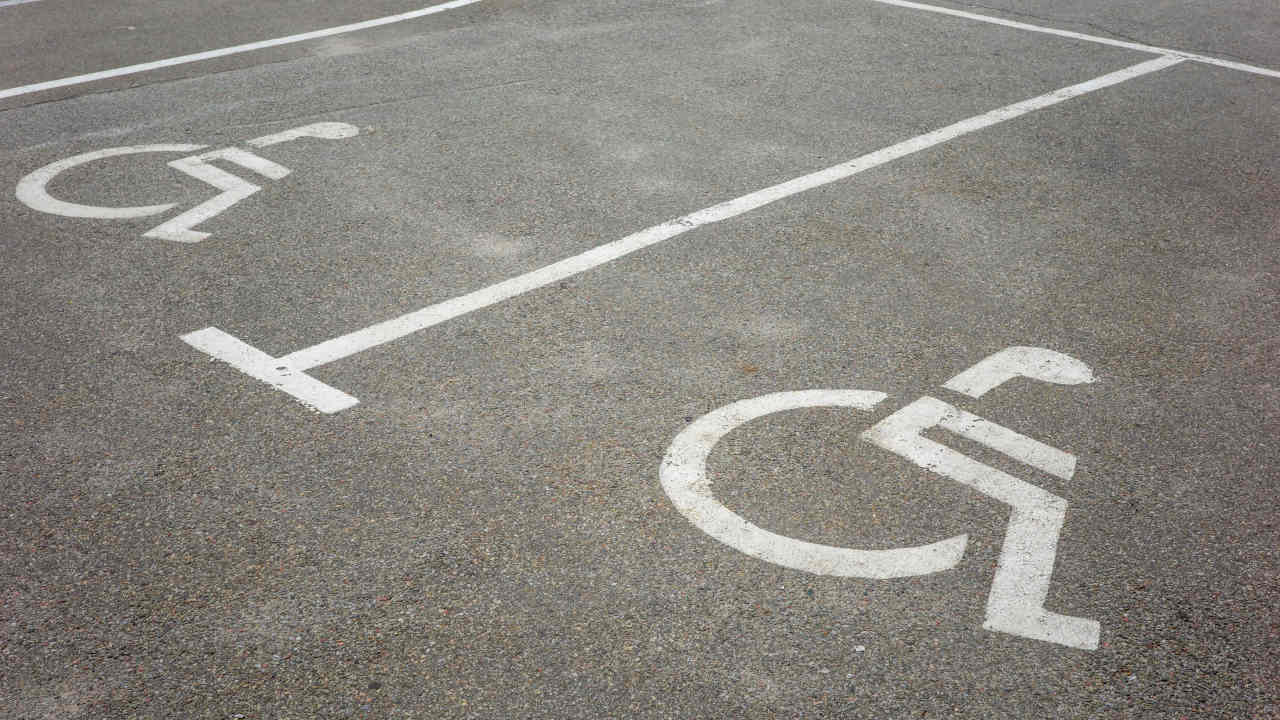
Between 2019 and 2024, councils up and down the country have issued 1,089,768 million fines to drivers misusing disabled parking bays. This sheer scale of enforcement highlights how widespread misuse of these spaces has been over the past five years.
Major cities in northern England and Wales report the highest number of fines, which is likely driven by high parking demand in city centres. Manchester alone issued 49,814 fines, followed closely by Leeds with 39,311 fines.
Certain streets and car parks emerged as repeat problem areas for disabled parking violations. In Manchester, St Marys Street in the city centre saw 3,519 fines, while Wormald Row in Leeds accounted for 5,776 fines, indicating concentrated misuse of disabled parking spaces in busy city areas. Coventry also stands out, with Trinity Street alone attracting 5,073 fines.
Overall, the findings demonstrate that while enforcement is active nationwide, disabled parking violations continue to be a persistent issue, highlighting the ongoing importance of protecting disabled parking bays for those who really need them.
Top 10 councils for Blue Badge parking fines
Some councils have issued significantly more fines than others, revealing where disabled parking bays are most at risk of misuse. We've highlighted the 10 councils that have issued the highest number of fines for Blue Badge bay violations since 2019 below:
| Council | Number of Fines |
|---|---|
| Manchester City Council | 49,814 |
| Leeds City Council | 39,311 |
| Lancashire County Council | 26,624 |
| Bournemouth, Christchurch and Poole Council | 23,837 |
| Bradford City Council | 23,640 |
| Cardiff Council | 21,846 |
| Lambeth Borough Council | 21,801 |
| Birmingham City Council | 20,598 |
| Newham Borough Council | 20,520 |
| Westminster City Council | 18,998 |
The data suggests a clear pattern where misuse of disabled parking bays is much more prevalent in busy city areas with high parking demand. This is likely due to a greater number of car parks and disabled spaces in these locations compared to more rural areas that are less accessible to those with mobility issues.
Daily Blue Badge fine distribution
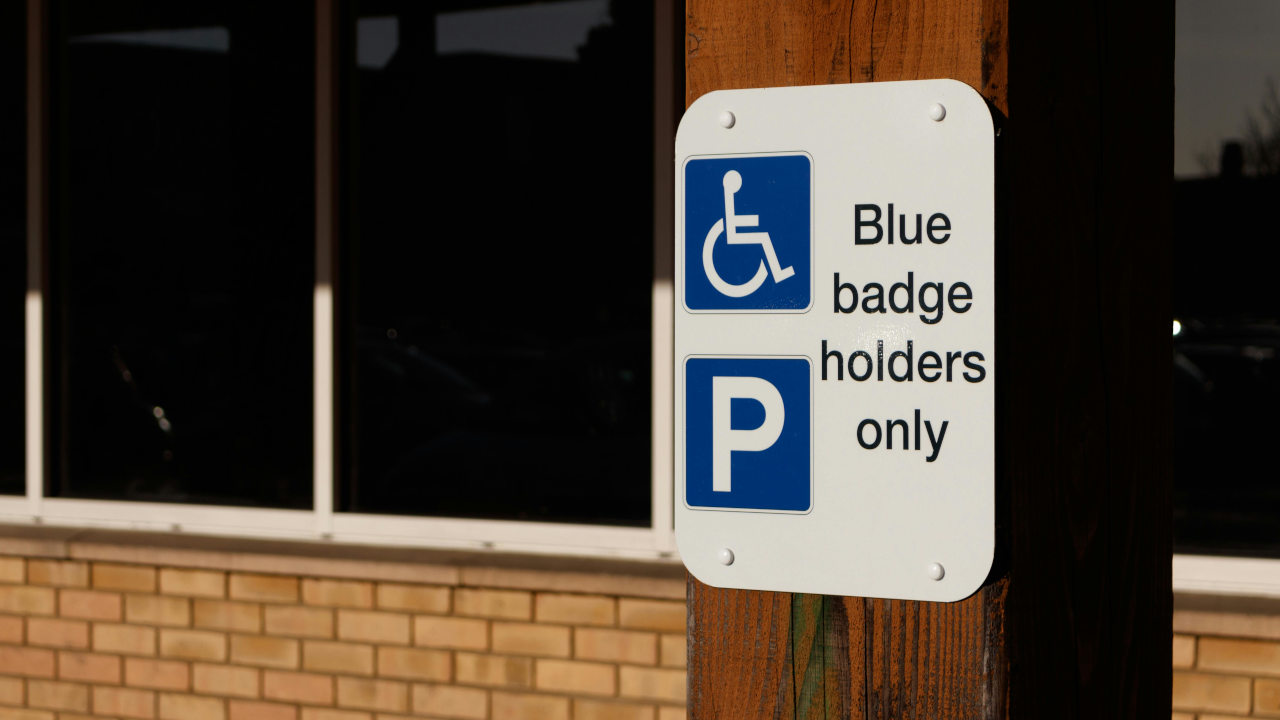
Parking spaces located within the area of city centres were found to have the highest daily average of issued PCN's, highlighting how misuse often stems from drivers seeking convenient spots in bustling areas. Wormald Row in Leeds, which has approximately 8 disabled parking bays, was amongst the highest, with an average of 3.17, while Trinity Street in Coventry followed closely behind, with an average of 2.79 PCNs issued per day for disabled parking bay violations.
Large outdoor and multi-storey car parks also rank among the top locations for disabled parking fines, including Midsummer Boulevard in Milton Keynes. This area recorded 4,788 fines from 2019 to 2024, amounting to an average of 2.64 fines a day. Parking in this area is close to Milton Keynes Theatre and the town centre, suggesting its prime position near shops and entertainment causes drivers to misuse disabled spaces.
Areas like Church Hill in Waltham Forest (2.1 daily fines on average) tell a similar story - though they're small towns, they feature facilities such as dental practices, convenience shops, and post offices, drawing enough local traffic to result in a significant amount of disabled parking violations.
Areas with the fewest Blue Badge violations
While it's clear abuse of disabled parking spaces is a persistent issue, there are still councils across the UK where violations are notably low, suggesting better compliance or less pressure on these spaces. The following are the 10 councils with the fewest disabled parking fines from 2019 to 2024:
| Council | Number of Fines |
|---|---|
| Merthyr Tydfil County Borough Council | 133 |
| Staffordshire Moorlands District Council | 289 |
| Derbyshire Dales District Council | 553 |
| Gateshead Metropolitan Borough Council | 743 |
| Blackpool Borough Council | 1,101 |
| Surrey Heath Borough Council | 1,221 |
| Monmouthshire County Council | 1,230 |
| Dudley Council | 1,261 |
| Blaenau Gwent County Borough Council | 1,948 |
| Enfield Council | 2,050 |
It's important to note that these councils are typically more rural or residential areas than the locations with highest fine rates, and feature less disabled parking spaces and daily footfall compared to busy town centres like Manchester and Leeds.
Areas including Merthyr Tydfil and Staffordshire Moorlands are part of the rural countryside, and so naturally experience lower parking demand, likely contributing to their lower fine counts. Similarly, regions like Derbyshire Dales and Monmouthshire are also quiet rural areas with fewer parking facilities, and in turn face less parking violations.
However, some slightly busier towns such as Blackpool and Enfield also feature among the councils with the fewest disabled parking fines. These areas feature more active high streets and facilities, but manage to maintain relatively low fine counts, which is potentially due to effective enforcement and compliance of parking rules.
Repeat Offenders
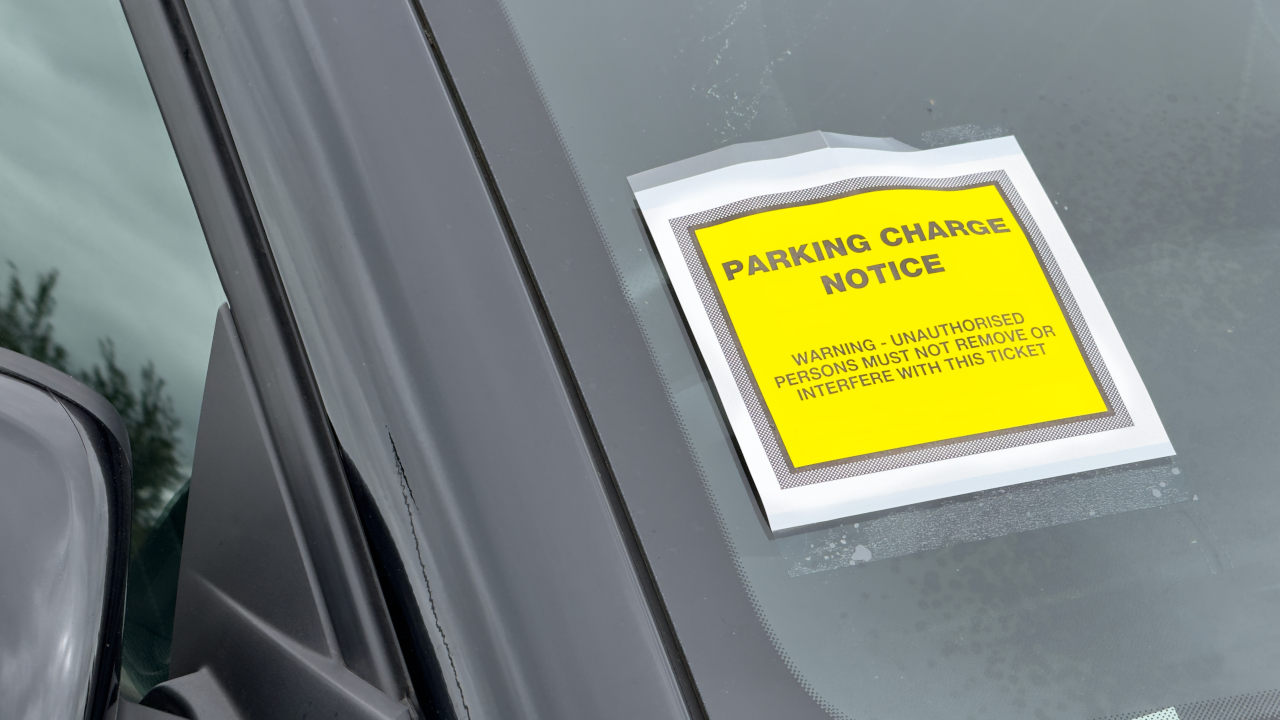
While many fines are one-off incidents, the data reveals a significant amount of drivers received more than one penalty for misusing disabled bays, suggesting the same vehicles are returning to these spaces despite previous fines.
The highest number of repeat offences was reported in Lambeth, with 12,256 cases between 2019 and 2024, reflecting the scale of enforcement in a highly populated area with high parking demand. Waltham Forest also reported high levels of repeat offending, with 4,747 PCNs issued to vehicles that had already been fined previously.
Manchester (4,005 repeat offences) and Leeds (3,981 repeat offences) also ranked among the highest, showing the busiest northern city centres not only see large volumes of fines overall, but also a noticeable number of repeat cases.
Several councils also highlighted individual cases where the same vehicle was fined multiple times:
- Kingston upon Thames - 1 vehicle received 34 fines
- London Borough of Hackney - 1 vehicle received 29 fines
- Sunderland City Council - 1 vehicle received 19 fines
- Barnsley Metropolitan Borough Council - 1 vehicle received 9 fines
At the standard £70 penalty rate, Kingston upon Thames' 34-time reoffender represents approximately £2,380 in fines over the 5-year period.
Most common offence locations
Blue Badge bay misuse often appears frequently in busy city centres, shopping districts, and car parks where parking is in high demand. These hotspots highlight the challenges faced by people with disabilities when these designated spaces are misused.
Based on the data from councils that shared location details, here are the top 10 most fined locations nationwide from 2019 to 2024:
- Wormald Row, Leeds - 5,776 fines
- Trinity Street, Coventry - 5,073 fines
- Midsummer Boulevard, Milton Keynes - 4,788 fines
- Market Place, Wokingham - 4,457 fines
- Church Hill, Waltham Forest - 3,891 fines
- Taff Street, Pontypridd - 3,585 fines
- St Mary's Street, Manchester - 3,519 fines
- Frodsham Street Car Park, Cheshire West and Chester - 3,359 fines
- Churchill Way, Cardiff - 3,155 fines
- Newgate, Rochdale - 3,102 fines
These hotspots are mostly in busy city centres, shopping streets, and public car parks, where demand for parking is high, and disabled bays are at greater risk of misuse.
The cost of misuse

Councils that shared revenue details from these fines have collected over £24.7 million between 2019 and 2024 - money that stems directly from drivers parking in spaces reserved for those with disabilities. This total, though significant, is likely an underestimate, as not every council provided figures, and some noted that actual income can vary based on discounted payments or unpaid fines.
Fine amounts often differ depending on the council and location, too. For example, areas in London such as Westminster City Council typically charge higher fines than rural councils, meaning high-traffic city centres often generate more revenue per penalty.
Standout examples include Manchester City Council, which generated £3.48 million, and Westminster City Council at £2.47 million, both reflecting the heavy enforcement in high-traffic city areas. Leeds (£2.75 million) and Lambeth (£1.18 million) also feature prominently, showing how persistent violations in busy areas translate into substantial amounts.
While the fines raise significant revenue, their primary purpose remains deterrence rather than profit. Councils often reinvest these funds into local services, including road maintenance, improved parking infrastructure, and accessibility initiatives, helping to support safer and more inclusive streets for everyone.
Why This Matters
Though some see it as a simple parking violation, misuse of Blue Badge parking bays directly affects the lives of people with disabilities every day. When these spaces are taken by drivers without a Blue Badge, those who rely on them struggle to reach their destinations, turning routine tasks into significant obstacles.
At Evans Halshaw, our network of retailers works with thousands of Motability customers every year, and hears first-hand how disabled parking bays and other accessibility measures make a real difference to their everyday mobility.
Commenting on these figures, Julie Wallman, Divisional Marketing Director at Evans Halshaw, explains:
“Disabled parking bays exist to ensure safe and accessible travel for people with limited mobility, whether they’re heading to a supermarket, medical appointment, or just going about their day.
“When drivers use these spaces without a Blue Badge, it reduces availability for those who genuinely need them.
“These figures show just how common this issue is across the UK, and highlight the importance of keeping accessible spaces available, particularly as more people rely on mobility solutions to support independent living.”
For someone with limited mobility, losing access to a nearby parking bay can mean the difference between managing their day or facing unnecessary hardship. Raising awareness and strengthening enforcement are crucial steps toward ensuring these spaces serve their intended purpose.
For those seeking more information, Blue Badge eligibility and guidance on accessible mobility solutions can be found on the Government's website.
To discover more automotive guidance and advice, visit our blog section, which is regularly updated with the latest insights and driving guides.
Methodology
Evans Halshaw submitted a Freedom of Information (FOI) request to 171 local authorities across the UK, asking for data on the misuse of disabled parking bays between 2019 and 2024. Specifically, councils were asked to provide the number of penalty charge notices (PCNs) issued for vehicles parked in disabled bays without clearly displaying a valid Blue Badge, as well as the total value of fines issued for these offences. Where held, information was also requested on repeat offenders and the locations with the highest number of violations.
As of September 2025, 123 of the authorities contacted responded with full or partial data that was able to be analysed. In some cases, data was supplied separately for Contravention Code 40 and Contravention Code 87, both of which relate to misuse of designated disabled parking bays. Where this occurred, the figures were combined to calculate overall totals. Similarly, councils that provided separate data for on-street and off-street offences had their totals merged for consistency.
While most authorities provided figures by calendar year, a small number used financial years or partial periods due to data migration or system limitations.
All valid responses have been included in the analysis.


